Pay hike for journalists unrealistic
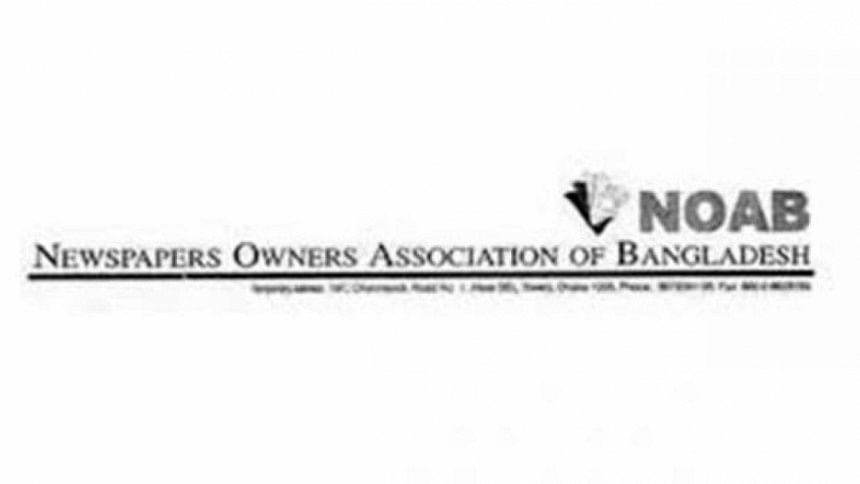
Terming the pay scales of the 9th Newspaper Wage Board unrealistic, Newspaper Owners’ Association of Bangladesh (Noab) yesterday said no newspaper was capable of implementing the 9th Wage Board.
In a statement, it said the newspaper industry was facing various hurdles and implementation of the Wage Board would only create a multi-faceted crisis that the industry was incapable to embrace.
The Noab came up with the reaction following the publication of the gazette on the “Ninth Wage Board Award” for journalists and employees of newspapers and news agencies on September 12.
Following is the full text of the statement by Noab:
The Noab has noticed with great sadness the publication of a gazette notification on the recommendations of the 9th Newspaper Wage Board which did not take into consideration the opinion of the newspaper owners.
This is more agonising that a writ is pending with the Supreme Court challenging the legality of the Wage Board formation. All scales have been increased by 80 to 85 percent in the gazetted notification, which is way above other corresponding scales in the industrial sector of the country. The Noab considers the new scales as unrealistic and therefore, unacceptable.
In a meeting held on Monday 16 September 2019, Noab termed the 9th Wage Board unrealistic and said that no newspaper is capable of implanting the 9th wage board. The meeting was attended by Tasmima Hossain, editor of daily Ittefaq, AK Azad, publisher of Dainik Samakal, Mahfuz Anam, editor and publisher of The Daily Star, Matiur Rahman Chowdhury, editor in chief of Dainik Manabzamin, Tarik Sujat, printer of Bhorer Kagoj, Dewan Hanif Mahmud, editor and publisher of the Daily Bonik Barta, Shah Husain Imam, editor of The Financial Express, Altamash Kabir, editor and publisher of Dainik Sangbad, ASM Shahidullah Khan, chairman of Editorial Board, New Age, and Matiur Rahman, editor and publisher of Daily Prothom Alo.
Although the pay scale for journalists is determined by the government-formed Wage Board, newspaper industry have to earn by itself to meet the cost of its implementation. Pertinent to mention that the government does not provide any special assistance or grant to meet the increased cost of implementation of this.
Newspaper owners have always tried to ensure the financial security of the journalists and pay the increased salary and allowances in the past. Even then, some newspapers have tried their level best to implement the government announced Wage Board Royedad.
However, the newspaper industry is passing the hardest time in the history of the country. Both circulation and income from advertisement have been sliding down continually.
On the other hand, government advertisement rate has always been very low. Besides, a large amount of advertisement revenue always remains pending with the government departments.
The industry has to pay tax and VAT in every step as well. It is struggling to survive now; many are running on subsidy from the owners or even failing to pay regularly.
In this backdrop, implementation of 9th wage board shall only create a multi-faceted crisis that the industry is incapable to embrace. Over these years, Noab has communicated this crisis verbally and in writing to the Ministry of Information, Wage Board and Cabinet Committee.
The Noab is not against the Wage Board for journalists. Despite a plethora of problems, we have participated in the Wage Board activities. We have requested to make it realistic both for journalists and the owners. But sadly pay scale and allowances have been increased from 80 to 85 percent. Among the government recognised 42 industries, pay scale of 38 industries are not even nearer to the 8th wage board. The 9th wage board has increased the pay scale significantly. It is even higher than the government employee pay scale.
Under the 9th Wage Board, the lowest grade is Tk 35,670 while the comparable government scale is Tk 15,360 with a difference of over Tk 20,320. This is very unrealistic in the context of Bangladesh.
A journalist having a bachelor or master’s degree will draw a gross salary of over Tk 67,112 in Grade-3. A government officer enters into service in Grade-9 with a salary of Tk 35,600 while a university lecturer gets Tk 37,305. Having the same academic degree, a journalist will get Tk 30,000-31,000 more compared to a first-class gazetted officer. Journalists are likely to get 1.5 - 2 times higher salary compared to a gazetted officer almost in every scale. Even multi-national companies fall behind in some cases. No newspaper can pay the increased salary and allowances.
The 9th Wage Board, besides increasing pay, has also raised various fringe benefits. General transport allowance has been raised by 100 percent, professional conveyance for journalists and business professionals have been raised by 71 percent and 100 percent respectively. Besides, some of the sundry allowances that Noab had requested to be expunged have not only been retained, but increased in some cases. However, we must mention the Cabinet Committee’s good gesture in bringing symmetry between the Bangladesh Labour Law of 2006, Income Tax Ordinance of 1984 and other industries in matters of income tax and gratuity. The legal weakness that was there has been amended.
Besides, the following suggestions from Noab have not been taken into consideration, such as:
There are only six grades under Newspaper Wage Board compared to 20 for government services. In banks and insurance companies, there are 18 to 22 grades. In line with these, Noab had proposed 18 grades for the journalists.
A recreation leave of 30 days in every three years has been provided with a net pay of one-month gross salary which is unknown anywhere in the government or semi-government sphere.
Under the 9th Wage Board, house rent has been fixed at 65 percent of basic pay. According to article 33(A) of the Income Tax Ordinance, house rent up to 50 percent is tax exempted. The remaining 15 percent is taxable. The Noab had therefore proposed the house rent to be fixed at 50 percent of the basic pay.
In general, most of the proposals tabled by Noab to Ministry of Information, Wage Board and Cabinet Committee have not been considered. Taking into consideration of all these facts, no newspapers shall be able to implement the 9th Wage Board. The Noab feels that to keep the newspaper industry alive, the government must reconsider the 9th Wage Board Royedad and seriously consider the recommendations of Noab.

 For all latest news, follow The Daily Star's Google News channel.
For all latest news, follow The Daily Star's Google News channel. 

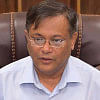
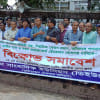

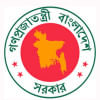
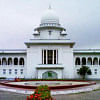


Comments